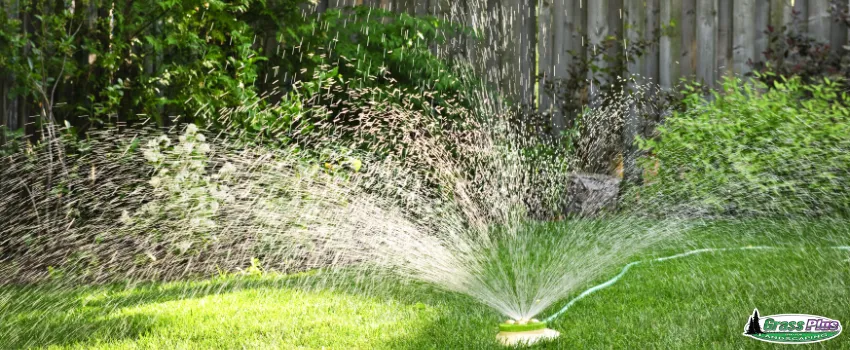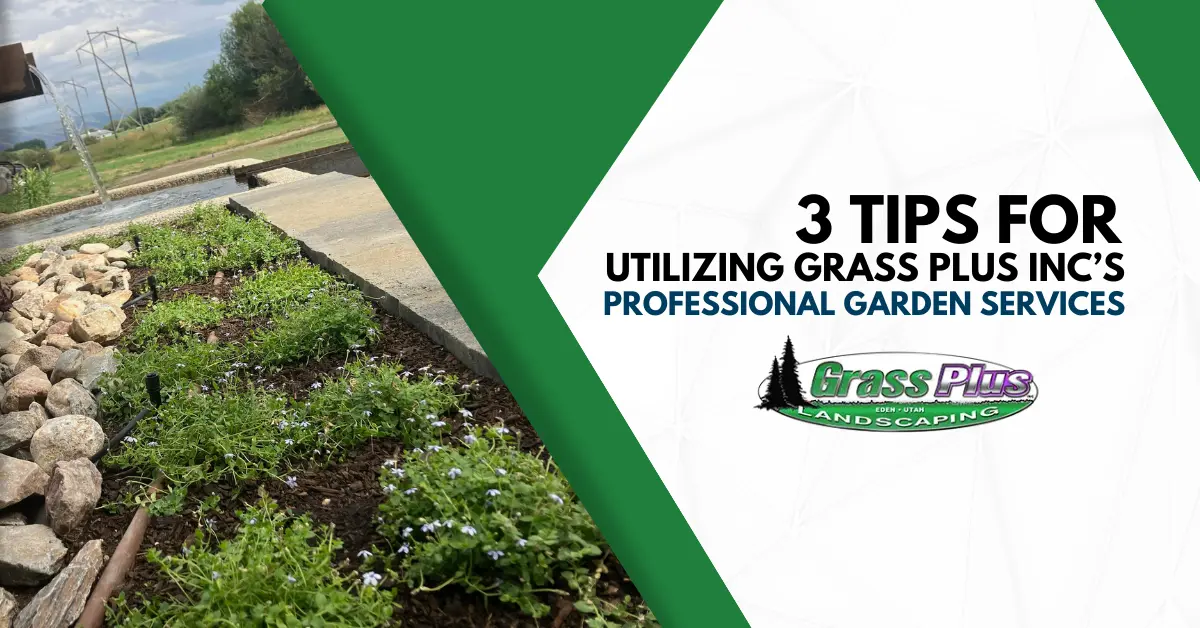Smart irrigation solutions are pivotal for sustainable water management, particularly in the verdant expanses of urban and suburban landscapes. These smart irrigation solutions blend technology with strategic conservation, aiming to nurture every plant while safeguarding our vital water resources. By embracing smart irrigation, we commit to maintaining the ecological health and aesthetic value of our green spaces.
As we go through this blog, we’ll dissect the complexities of irrigation design and provide essential irrigation tips to avoid common pitfalls. Understanding the science and art behind irrigation solutions is key to achieving a thriving landscape. We will discuss how to tailor landscape irrigation practices to diverse flora and various environmental conditions.
Why is irrigation important for landscaping?
1. Plant Growth and Health
Water is a fundamental element for the growth and survival of plants. Effective landscape irrigation ensures plants receive adequate water, promoting their health and vitality. Irrigation solutions facilitate the proper growth of plants, enhancing the overall aesthetic appeal and biodiversity of the landscape.
2. Soil Nutrient Distribution
Proper irrigation design ensures that water evenly penetrates the soil, facilitating the uniform distribution of nutrients to plant roots. It promotes healthy, even growth and reduces the likelihood of patchy areas within the lawn or garden.
3. Aesthetic Enhancement
Landscape irrigation is pivotal in maintaining the lush, green appearance of gardens and lawns. Smart irrigation solutions ensure that landscapes are visually appealing, increasing the property’s value and providing serene, beautiful outdoor spaces for relaxation and recreation.
4. Water Conservation
With the integration of technology and intelligent planning, smart irrigation solutions are designed to conserve water. By delivering water precisely where and when it’s needed, these irrigation solutions reduce wastage, contributing to environmental conservation.
5. Preventive Care
A well-irrigated landscape is resilient to pests, diseases, and harsh weather conditions. Preventative care is one of the more vital irrigation tips because it reduces the need for chemical interventions and maintenance while ensuring a healthier, more natural landscape.
Importance of Customized Irrigation Design
Smart irrigation solutions are tailored to meet the unique needs of different landscapes, ensuring that each plant and grass type receives the appropriate amount of water. Let’s explore why having a different or tailored irrigation design is paramount:
1. Adaptation to Different Plant Needs
Every plant species has distinct water needs. Smart irrigation solutions adapt to these requirements. An irrigation design tailored for a succulent garden, for instance, would vastly differ from one suited for a lush, green lawn. This customization minimizes water wastage and promotes plant health.
2. Environmental Compatibility
Each landscape exists within a unique ecological context. Varied irrigation solutions are essential for ensuring that water use aligns with environmental conditions like climate, soil type, and topography. It enhances the sustainability and resilience of the landscape irrigation system.
3. Resource Optimization
A one-size-fits-all approach can lead to water wastage or inadequate watering. Tailored irrigation solutions optimize water use and ensure that each area of your landscape receives just the right amount.
4. Water Runoff and Erosion Prevention
A customized irrigation design considers the slope and terrain of the landscape. It helps in preventing water runoff and soil erosion, crucial aspects in maintaining the structural integrity and aesthetic appeal of the landscape.
How to Monitor and Maintain Irrigation
Implementing smart irrigation solutions is only the first step in ensuring a lush and healthy landscape. Regular monitoring and maintenance are pivotal in optimizing the performance and longevity of your landscape irrigation system. Below, we explore comprehensive steps and tips.
1. Identifying Common Problems
Irrigation systems can encounter issues like clogged nozzles, leaking pipes, and the occurrence of overspray. Addressing these problems promptly enhances the efficiency of irrigation solutions. Regular inspections help in early identification and resolution, reducing water wastage and ensuring that plants receive adequate hydration.
2. Soil Type and Quality
The type and quality of soil significantly influence the effectiveness of irrigation solutions. Different soils have varied absorption rates. Sandy soil, for instance, drains quickly, while clay retains moisture. Understanding your soil type and quality is pivotal in customizing smart irrigation solutions that ensure effective and efficient water delivery.
3. Factors Affecting Irrigation Efficiency
Elements like weather conditions, plant type, and landscape slope can impact landscape irrigation effectiveness. Smart irrigation solutions should adapt to these factors, ensuring optimal watering regardless of changing conditions. Automated systems and sensors can aid in adapting the irrigation in real time.
4. Maintenance Checks
A routine maintenance schedule is essential in ensuring the optimal performance of smart irrigation solutions. Experts recommend a monthly check for residential landscapes and more frequent checks for commercial spaces. These inspections should focus on system pressure, leaks, and the proper functioning of sensors and timers.
5. Irrigation Tips for Effective Monitoring
Keeping an eye on the landscape is one of the essential irrigation tips. Look for signs of over-watering or under-watering, such as yellow leaves or wilted plants. Adjust accordingly to ensure that every part of the landscape receives the appropriate amount of water. Utilize technology like sensors to automate and optimize this process.
6. Adjusting to Weather Conditions
Weather conditions have a direct impact on landscape irrigation needs. Installing weather sensors and smart controllers can automatically adjust water delivery based on current weather conditions.
7. Educational Resources and Professional Help
Stay informed about the latest irrigation tips and technologies. Consider seeking professional help for maintenance and monitoring to ensure your irrigation system is functioning optimally, especially for intricate or extensive landscapes.
Helping the Environment Through Smart Irrigation Solutions
Proper irrigation is a cornerstone for thriving landscapes and a balanced ecosystem. Implementing essential irrigation practices can have a profound impact on plant health and the surrounding environment.
Enhanced Plant Growth
One of the foundational irrigation techniques is ensuring that plants receive an appropriate amount of water. Over-watering or under-watering can lead to stunted growth, disease, or even plant death. Proper irrigation caters to the specific water needs of various plant species. It ensures that water penetrates the soil deeply enough to nourish roots, leading to healthier, stronger plants with enhanced resistance to pests and diseases. Each plant receives the right amount of water at the right time through targeted water delivery.
Soil Preservation
Soil health is integral to robust plant life and a balanced ecosystem. Irrigation that focuses on avoiding waterlogging or excessive dryness helps maintain soil structure and nutrient content. Proper irrigation fosters the thriving of beneficial microorganisms and prevents soil compaction or erosion. By preserving the soil’s integrity, it supports the flourishing of plants and prevents the runoff of sediments into nearby water sources, protecting aquatic ecosystems.
Water Conservation
Water is a precious resource, and conservation is among the top irrigation tips. Efficient irrigation systems ensure water is not wasted through runoff, evaporation, or over-watering. By delivering water directly to where it’s needed and in the right amounts, these systems promote the prudent use of water. Incorporating technology like sensors and timers further refines water usage, contributing to global water conservation efforts.
Climate Moderation
Well-irrigated landscapes contribute to climate moderation. Trees and plants absorb carbon dioxide and release oxygen, improving air quality. Effective irrigation supports lush landscapes that provide a natural cooling effect, reducing the heat island effect common in urban areas. Emphasizing efficient water use fosters green spaces that serve as carbon sinks and oxygen generators, promoting a healthier, cleaner atmosphere.
Biodiversity Support
Biodiversity is enhanced when irrigation is effectively implemented. Properly irrigated landscapes support a variety of plant species, which in turn attract a diverse range of wildlife. Birds, insects, and other animals find habitat and food in well-maintained landscapes. The creation of such balanced ecosystems contributes to the overall environmental equilibrium, where each species plays its role in the intricate web of life.
In conclusion, adhering to essential irrigation techniques is not just about fostering luscious and vibrant landscapes; it’s a commitment to the intricate balance of ecosystems. Each drop of water, when used wisely, contributes to a world where plants, animals, and humans coexist in harmony.
Key Takeaway
The convergence of irrigation design and practical irrigation tips is essential for cultivating lush landscapes that are both visually stunning and environmentally responsible. Tailored irrigation strategies are crucial, as they not only promote vibrant plant growth but also steward environmental health. This combination of precision and adaptability in irrigation underscores its importance as an artful science that harmonizes human cultivation with nature’s balance.
Delving into the mechanics of irrigation reveals a complex interplay of factors, from soil types to system maintenance, that dictate its efficacy. It’s a craft that extends beyond mere installation, influencing the environment profoundly. Efficient irrigation is a technical endeavor and a commitment to the sustainability of our ecosystem, blending expertise with ecological guardianship.
Call Grass Plus, Inc. today for expert landscaping and irrigation in Utah!
Grass Plus, Inc. specializes in creating vibrant, sustainable landscapes tailored to the unique needs of each space. Understanding that landscape and irrigation in Utah have their own distinct requirements, we commit to blending innovative technology with proven techniques. We ensure every blade of grass and every drop of water reflects the highest standards of quality and ecological responsibility.








